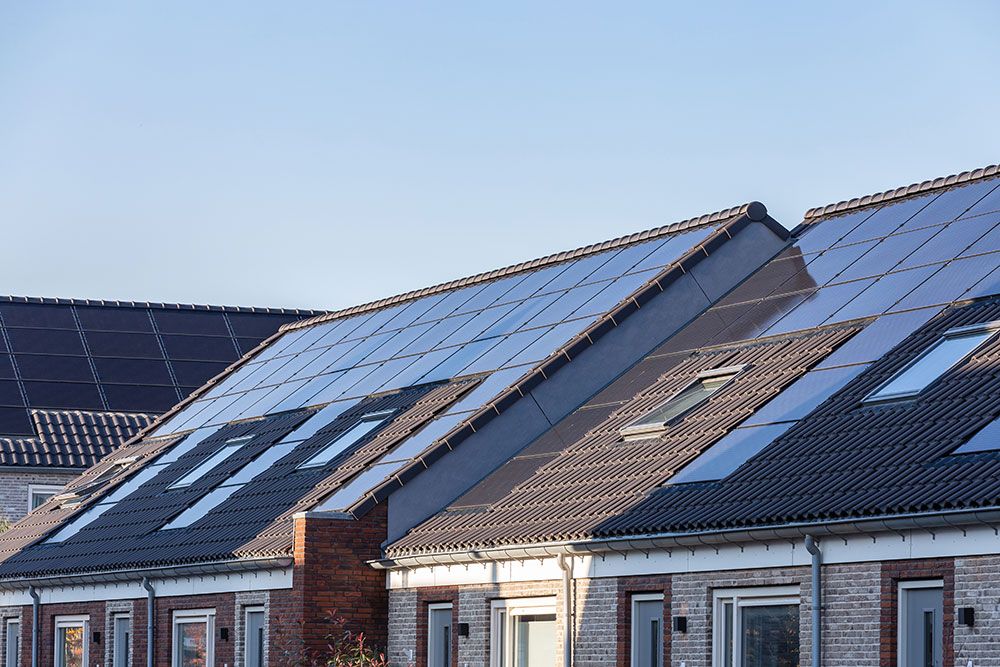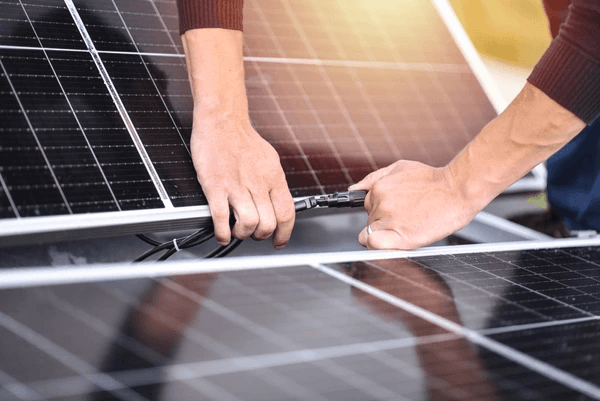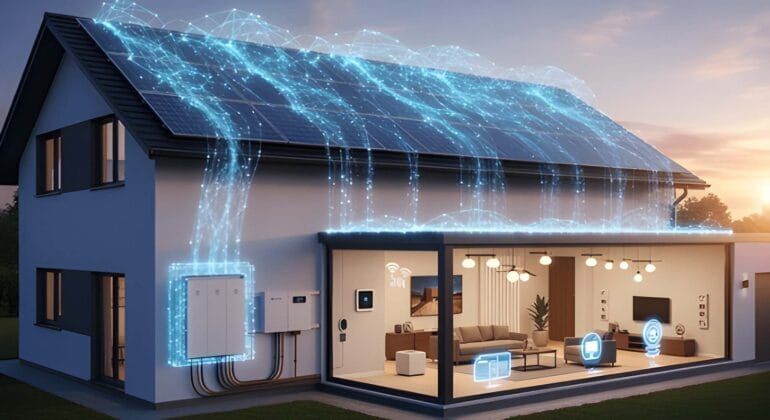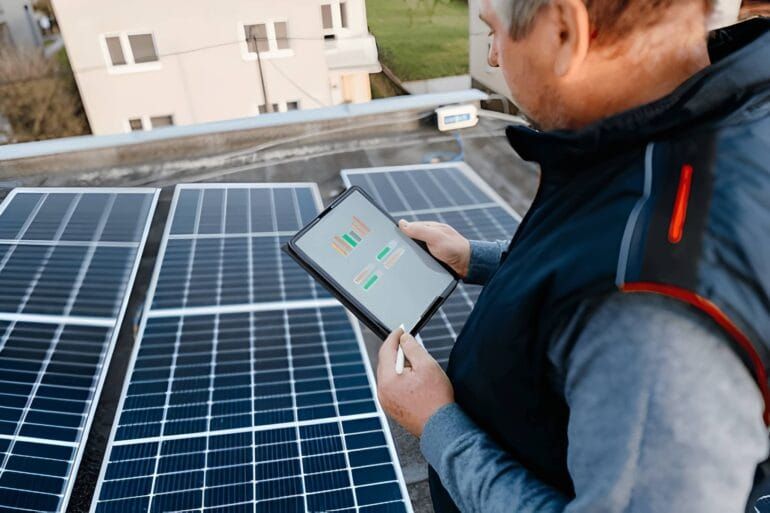The pandemic due to the coronavirus, SARS-COV-2, which causes the potentially deadly COVID-19 has changed the way people go about their routines. In that situation they also affect Solar and Energy Bills. Although Australians can now go to certain public spaces, wearing a mask, such as a surgical mask, is recommended for protection against the spread of the virus.
Many companies have to shut down or at least halt their operations for about a month or so. As a result, workers were laid off.
Thankfully, several people found a solution to their problem: through remote work and working from home.
The Rise of Home Worker Numbers
A survey estimated that more than half of the workforce in the US would have remote jobs. Before the pandemic, about 3.6% worked at home, including part-timers.
The prediction is that there will be greater adoption to this practice, the more people stay at home. Some people who have worked from home before the pandemic may choose to increase the frequency of remote work. It is even if they are allowed to go back to their offices.
Meanwhile, those who are new to this work set-up, there may be a dramatic upswing with their implementation.

The reason is easy to see. There is already an increased demand for employees willing to work from home.
Also, managers and executives have less fear when it comes to letting their workers do their jobs in their personal space. A big holdback of remote work is the lack of trust. Executives do not simply trust employees to perform untethered action. However, times have changed. Even managers who have worked at home during the pandemic are more likely to endorse the concept to other people.
Aside from these reasons, working from home has many other benefits for businesses and employees, including:
- Providing a resolution for the increased preparedness in times of disaster
- Increasing the awareness of saving on costs
- Helping the environment with more sustainable efforts and methodologies
- Reducing the need for business travels
Australians are among those who see the advantages of working from home. The Government, through the Australian Public Service Commission, supports teleworking, which is described as a way to achieve better flexibility for various work practices.
The Australian Bureau of Statistics stated that 3.5 million (or a third of all the employees in the country) worked from home in 2016. These people either had to do so because it was their main job or they operated an online company.
Big firms, such as Optus, Amazon, and Apple, have decided for their staff to work at home permanently. Experts also agree that it is better to work from home if you can.
With the advent of the coronavirus pandemic, the numbers are predicted to keep increasing. It will persist even with the easing of quarantine regulations. Plus, the Government has provided incentives to people who work remotely, including an increase in the number of job opportunities in the country.
The Impact of COVID-19 on Renewable Energy
The coronavirus not only prompted people to start working from home but also increased the use of power bills. With many people stuck at home, they turned on their fans and air conditioners more often. They also watched more TV and had to frequently use their chargers to power up their phones and other devices. Netflix and Google noted the significant spike in the number of users over the past several weeks.
With numerous homeowners urged to stay at home, their power consumption also went up. However, a surprising turn of events showed that electricity sales went down by 20%, as confirmed by Origin Energy. Unlike other countries, Australia remained unfazed by the rising electricity demand. It is largely due to the increase in the numbers of rooftop solar installations.
The need for various sources of energy has amplified as a response to the pandemic. However, solar is considered best placed to survive this ongoing crisis. As a renewable source of energy, solar is set to continue growing in comparison to other energy sources, including oil, gas, and coal. As they start shrinking, solar demand surges, according to theInternational Energy Agency (IEA).
Renewables, including solar, have always been the most resilient energy sources since the first few weeks after the coronavirus outbreak. It was a surprise because some surveys foretold the decline of renewable power this year. The disruptions in the supply chain, along with social distancing measures, were expected to delay solar system construction and installation.
However, the opposite happened.
Installations of solar PV panels for roofs and businesses have grown and believed to drive future developments as well.

The Benefits of Using Solar Power during the Pandemic
Working from home is not a new concept. In fact, it has been around since the 1970s. And without a cure or at least a way to prevent COVID-19 infection, Australians want to work at home. Most would argue it is for their safety.
With many Australian companies offering flexible work arrangements, most workers are willing to grab the opportunity. The best thing about it is that solar has become more affordable, both for employees and businesses.
Social distancing measures are slowly being lifted in different parts of the world. At the same time, the Government introduced several stimulus packages to help everyone get through the tough times.
Incentives, such as the $17.6 billion coronavirus stimulus package, were modified to provide more attractive offers. For example, the relief package for businesses now has an increased scope. The benefits make business purchases more appealing than ever, including buying and installing a solar system.
The Instant Asset Write-Off applies to businesses with solar panels installed on their roof before 30 June 2020. If you are late in the game and cannot avail this asset write-off, it does not mean you cannot get incentives. You are still entitled to certain financial support from the Government.
Aside from these benefits, here are more reasons why workers from home, as well as online businesses, should look into using solar PV systems:
- Solar panels are a smart investment.Without question, using solar systems is a wise choice. If there is one thing that COVID-19 has taught people, it is that we should all invest in something that helps us thrive. These material things should support our health, as well as everyone’s wellbeing. Solar panels lend a hand in lowering the vulnerabilities of the economy and infrastructure. Instead of turning to coal and other polluting sources of energy, it is time for us to take advantage of natural resources.
- They have become cheaper.Gone are the days when people used to say that solar systems are only for the wealthy. Over the years, the prices in panels, inverters, and other necessities, along with professional installation, have declined. The significant drop in solar packages showed Australians and other people around the globe that you can have solar installed on your roof without breaking the bank.Solar is renewable. It is among the cheapest sources of power generation and can be utilised by more than 60% of the world’s population. Solar energy also does not require fuel costs, which even eases the burden on the economy.
- Clean energy provides at least three times with the return of the initial investment.The Global Renewables Outlook 2020 claimed that converting to solar and other renewable energy sources can limit the rise of global temperature to less than two degrees Celsius. Although it would mean businesses will spend about $20 trillion, the benefits are worth at least $50 trillion by 2050. With the possibility of bringing up to $142 trillion in economic return, the GDP of the world can grow by 2.4%.Even more compelling is the lower costs of health insurance premiums. Governments can save more as they avoid health costs because of the reduced air pollution.
- Fossil fuel prices are increasing, which presents an opportunity to fast-track the switch to clean energy, such as solar power.The coronavirus crisis hit numerous industries, but fossil fuel was among the biggest sufferers. Since January 2020, oil demand has seen a massive drop in numbers. There were also historic bombshells, including crude oil prices turning negative in the US.COVID-19 showed it is time to sever fossil fuel reliance. And using solar power is one of the best and easiest steps to take.
- Solar offers numerous other benefits.Using solar panels has several big advantages. When you are working from home, you want to reduce your power bills. Most of the time, it is not possible. You need to use your laptop, heating or cooling appliances, lighting, printers, and other electronics to make working from home more comfortable. Installing the panels can do just that, except you do not have to worry about high energy charges.
With solar PV systems becoming more accessible and affordable, they give the peace of mind homeowners need during these tough times. For stay-at-home workers and businesses, now is truly a great time to invest in an efficient solar system.
FAQs
Q: Does working from home affect my energy bills?
A: Yes, working from home can impact your energy bills. With increased usage of electronics, lighting, heating or cooling systems, and other appliances during working hours, your energy consumption is likely to rise. It is important to be mindful of your energy usage and adopt energy-saving practices to manage your bills effectively.
Q: Can solar panels help reduce my energy bills when working from home?
A: Yes, solar panels can help reduce your energy bills when working from home. Solar panels generate electricity from the sun, which can offset the energy consumption of your home office equipment and other appliances. By utilizing solar energy during the day, you can potentially reduce your reliance on grid electricity and lower your energy costs.
Regardless of whether or not working from home will be the new normal in the future, solar power is here to stay. This COVID-19 crisis reinforces the positive effects of transitioning to sustainable energy and solar PV systems. Easy Solar can help, contact us today.







